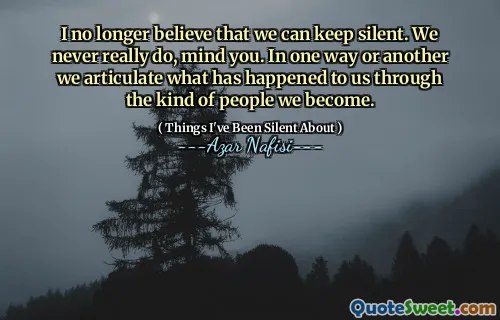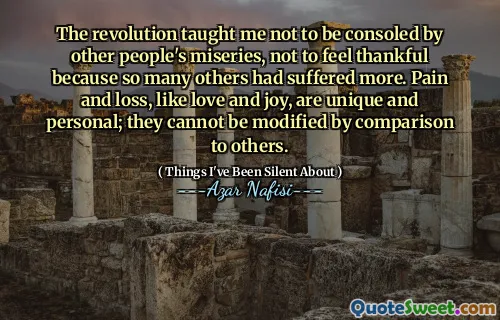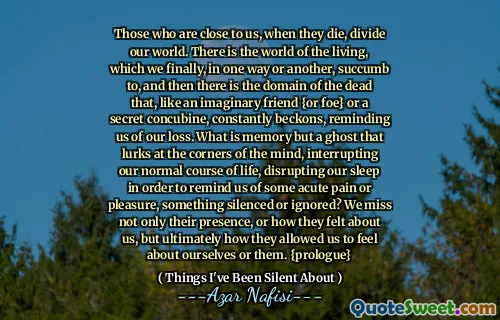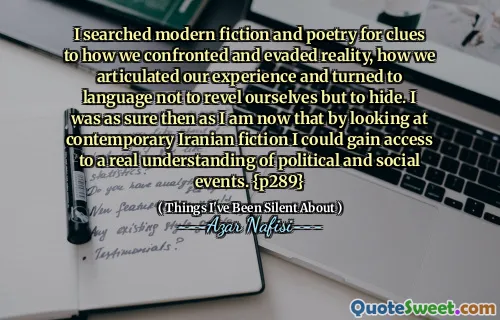
那些靠近我们的人,当他们死亡时,会分裂我们的世界。有一个生活的世界,我们终于以一种或另一种方式屈服了,然后有死者的领域,就像一个虚构的朋友{或敌人{或敌人}或一个秘密的conc umbine,不断地招呼,使我们想起了我们的损失。什么是记忆,但是一个幽灵潜伏在心灵的角落,打断了我们正常的生活过程,破坏了我们的睡眠以提醒我们一些急性痛苦或愉悦,这是沉默或忽略的?我们不仅想念他们的存在,或者他们对我们的感受,最终他们如何使我们对自己或他们的感觉。 {序幕}
(Those who are close to us, when they die, divide our world. There is the world of the living, which we finally, in one way or another, succumb to, and then there is the domain of the dead that, like an imaginary friend {or foe} or a secret concubine, constantly beckons, reminding us of our loss. What is memory but a ghost that lurks at the corners of the mind, interrupting our normal course of life, disrupting our sleep in order to remind us of some acute pain or pleasure, something silenced or ignored? We miss not only their presence, or how they felt about us, but ultimately how they allowed us to feel about ourselves or them. {prologue})
📖 Azar Nafisi
这句话反映了当靠近我们的人去世时所经历的深厚损失感。这表明他们的死是在生命领域与死者领域之间的鸿沟。这种分离使我们陷入了可能令人困扰的回忆,类似于破坏我们日常生活和思想的幽灵,使我们想起了喜悦和悲伤。我们对亲人的记忆不仅唤起了对他们在场的渴望,还影响了我们的自我感知和情感状态。
此外,这句话强调了我们的记忆如何不断地提醒我们与那些走的人的情感联系。这些记忆侵入了我们的和平,无论它们是唤起幸福还是痛苦,这说明了死者对我们生活的深远影响。最终,他们的缺席不仅创造了一个空白,而且还塑造了我们看到自己的方式,强调了我们存在中的损失与记忆之间的复杂相互作用。





